An American eyewitness to the fateful events on the Promenade des Anglais on July 14, 2016 is working on a feature film that begs to be told. Here is how you can be part of it.
More than seven years after one of the most horrific terrorist attacks in French history, on Bastille Day 2016, memories of the event have seemingly faded in the background and Nice has moved on. The blood-soaked pavement of the Promenade des Anglais has long since been replaced with a layer of fresh bitumen. The only things still discreetly reminding the public of the events are a commemorative statue; a memorial plaque tucked away from the Promenade on the grounds of Musée Masséna; and some individual – and frequently rivaling – activities such as the families’ annual Christmas tree battle over who gets to put theirs in a more prominent spot. And every now and then, there are still updates in the Miscellaneous section of the local paper on the status of the ongoing lawsuits of the victims’ families against the Ville de Nice for the lack of meaningful security on that night. But locals bike, jog, and walk their dogs again, tourists fight for the best selfie spots as they have always done on this two mile stretch along the Baie des Anges, and life goes on as if nothing ever had happened.
The terrors of that night are, however, still vividly present in the mind of eye witnesses, among them Polish-American artist Maciej Czarnecki. He was on the Promenade des Anglais on that fateful night to celebrate Bastille Day and enjoy the fireworks. He escaped by pure coincidence, having stepped into a quieter side street to buy a cold drink just moments before a truck, driven by a radicalized Muslim, came barreling along and mowing down everyone in its path. Maciej may have been unscathed physically but those images of 84 people instantly killed and hundreds of injured victims will stay with him for a lifetime. (Later, the death toll would be raised to 86.)
Maciej’s way of coping is art. Shortly after the events he wrote and released the song 84 Flowers under his pen name faSade, paying tribute and donating 20% of the proceeds from sales to the victims of that fateful night on the Prom’. The City of Nice recognized his contribution, the local paper Nice Matin dedicated an article to it. But he also channeled his memories into a script for a feature film titled 84 Flowers which has recently piqued the interest of a renowned Hollywood producer.
While the screenplay is based on Maciej’s own experience as a witness to the terrorist attack, it first and foremost tells a love story: We follow Kuba, a New Yorker who after losing both his high-profile job and his hope of becoming a musician drifts to the French Riviera in search for direction. He barely escapes a terrorist attack, only to discover love and meaning in an unexpected place.
The other protagonist is Yasmeen, a young Muslim teacher who fled war-stricken Syria and sought refuge in France, only to be rejected by French society, already scarred by the Islamist “Charlie Hebdo” and “November 13” attacks in Paris in 2015. Kuba’s and Yasmeen’s stories intersect, showing that love doesn’t distinguish between national origin and religion.
Going one layer deeper, the film is also a reflection about the immigrant experience and a critique of the victimization of immigrants, women, and women’s bodies in culture wars by politicians in their drive for power. And it is a cautionary tale about the dangers of pushing immigrants to the margins of the society set against the background of the social changes and conflict associated with immigration to the United States and to France.
But before the project advances, Maciej Czarnecki is on a quest to raise 5 million dollars toward the production costs. We spoke to the author about the film and the associated GoFundMe campaign
Maciej, first of all: how are you doing today, over seven years after witnessing the horrific events that night? Do these memories still affect you?
I am doing very well, thank you! I am thriving professionally in a Boston office of a New York City-based firm, which had also allowed me to experience the excitement of living in NYC for a few years. My fascination with the Big Apple turned it into one of the key locations of my story, next to Nice.
Personally, the horrific events of that night did not break me. I treated them as a second chance at life, a life more creative and fulfilling. The screenplay for 84 Flowers and the songs I have written since then are the direct result of the will to live more productively that I pushed myself into after seeing the death and destruction, and the bewilderment and outpour of grief that followed over the next few days.
I always enjoyed writing but I used to feel that I was missing a story worth telling. That tragic night in Nice, I was presented with a deep, and multidimensional story that I could tell honestly from a first-hand experience. I saw these events as a vehicle to deliver observations on some timely and complex themes about the role of immigrants, women, and religion in our societies, and the role of politicians in sowing divisions for political gain. Of course, no one wants to watch a political thesis on a big screen, so I delivered these big themes through a love story that translates them into relatable and universal experiences of the protagonists.
There is also another connection between the cities of New York and Nice: both experienced devastating terror attacks that traumatized and possibly jaded the population.
The story has strong autobiographical traits, especially the part where Kuba rides out his midlife crisis in Nice. Is this for you a way of coping with your own story?
I agree, the story reflects some key elements of my life: experiencing the life of an immigrant in the United States, getting laid off from a job, taking a break in Nice to reevaluate my life’s priorities, aspiring to have my music noticed. However, unlike Kuba, I am happily married to a wife who is the best intellectual and conversational partner one can wish for and who has always encouraged me to write. And our 22-year-old daughter is just is starting a career with a degree in political science. I also like to think of myself as less arrogant than Kuba at the beginning of his journey, hahaha.
As much as I talk about the tragic events of that night as an artistic inspiration, I have to admit that writing the story was in a large part a way of dealing with the trauma of what I witnessed. Trauma perhaps not as severe as the trauma of those who were physically injured and their families, and the families of those who died. But the psychological scars can last for a lifetime as well. I realize that I share those scars with all the other witnesses of this even and all the residents of Nice. My lyrics reflect the senselessness of these deaths, and one’s own helplessness.
84 Flowers on the promenade
Crazy gardener planted them in blood
84 dreams
Prematurely cut
In the name of what, in the name of what?
— Extract of lyrics of 84 Flowers
Right after I ran away from the scene, I called my wife hoping to tell her that I am safe before she sees any media reports of the attack. For the first time, I cried uncontrollably. And to this day, I tear up every time I talk about this event. I am no longer ashamed of the tears, I guess they are the ointment that heals the scars.
But this is not a film just about terrorism. It’s both a love story between two people from very different backgrounds Kuba, the privileged New Yorker searching for meaning, and Yasmeen, the Muslim war refugee in France rejected by the terrorism-scarred French society, and it is a story about immigration – it humanizes the immigrant experience as a universal experience, but also it is also a cautionary tale about the dangers and human cost of pushing immigrants to the margins of the society.
Was it hard to convince American movie makers of this material, and if so, why?
I have approached many producers both in the United States and in France. Although their feedback about the story itself and the writing has been overwhelmingly positive, most of them have been reluctant to take a risk on a project that discusses such sensitive topics as a terrorist attack and immigration. I have found this reluctance on both sides of the Atlantic.
I was, however, fortunate to find an established producer who is interested in producing the project and has recognized not only its artistic but also its commercial potential. He is known for producing high-profile documentaries and feature films on prime streaming platforms like Netflix and HBO Max, and for having worked on projects with Jenna Ortega, Samuel L. Jackson, Uma Thurman, and Spike Lee’s BlacKkKlansman.
Given the producer’s authorization, who do you have in mind as a director or as lead actors?
The choice of a director would be at the discretion of the producer, but I would love for it to be directed by a female director to give proper justice to Yasmeen’s perspective of the story. The renowned director Agnieszka Holland has been generous with her time – she has read the story, offered helpful feedback, and called it a “decidedly great story, well written”. However, she is unavailable to direct it as she has just directed and received critical acclaim for Green Border, a story with similar themes of immigration. I would also love for a director like Nadine Labaki to inject the kind of sensibility and humanity I was so impressed by in her Capernaum.
Of course, the story could also be effectively told by a male director with a connection to Nice, someone like Jesse Nesser, a rising director who grew up in Nice and shares my interest in storytelling based on real-life events and in exploring the intricacies of humanity.
The project is definitely gaining momentum. I have also obtained commitment from the French-Lebanese actress Stephanie Atala for the role of Yasmeen. Stephanie has been nominated by Screen International as one of the Arab Stars of Tomorrow. I have also received a response from the agent of an Oscar-nominated cinematographer that they would be happy to talk about the project once it takes off and are rooting for its success.
Finally, I would love for the French-Lebanese trumpeter Ibrahim Maalouf, whose performance style draws inspiration from the Arabic tradition, to perform a solo on the theme song of the film. He has previously performed in a Bataclan tribute with Sting.
Although exceptionally well-integrated in American society, you are an immigrant yourself, having arrived in the USA from Poland in 1988. In today’s political climate in America, do you feel any kind of adversity or resentment against yourself?
One song that I wrote and performed was “My America”. I wrote its lyrics as a longing for the idealized vision of America that I remember from the time I immigrated here with my parents as a refugee from (then) communist Poland. Perhaps naively, I was then seduced by the image projected by my adopted homeland of a country that aspired to represent the best in humanity. I truly believed that it was guided by the inscription on the Statue of Liberty, “Give me your tired, your poor, Your huddled masses yearning to breathe free…“.
I felt that politicians publicly echoed these aspirations, even if their actions in both domestic and foreign policies contradicted their public statements. In contrast, for the first time since World War II, it is now mainstream politics to convey hate and cruelty in political speech, to call for the killing of your political enemies, and to dehumanize and demonize minorities. It is so mainstream that it can get you elected, and possibly reelected, as a president of the United States.
It appears that politicians in the United States and across the globe today seem to be reading from the same instruction manual that guides them to manipulate the most basic emotions of fear and distrust of “the others” to divide our societies and gain political support in the process. That’s where these lines in my song come from:
“You used to preach love, you gave me shelter.
Now I don’t recognize you,
now you’re spewing hatred. (…)
Hating and cruel, you’re not my America.
Come back to me, the way you used to be,
my America”.
I used to think, arrogantly, that my success as an immigrant, was largely of my own making. Some of that arrogance is reflected in Kuba at the beginning of his journey. Over time, however, I realized that I have been enjoying many of the privileges other immigrants don’t: I immigrated with a solid knowledge foundation from an egalitarian educational system in communist Poland; I was a white male who did not experience racial, ethnic, or religious discrimination; and although I spoke with an accent, it was a “desirable” accent, as one hiring manager told me.
Over time, I noticed that my ability to integrate into the American society and reach some level of success is perhaps not typical and not reflective of the experience of immigrants from other cultural, ethnic and religious backgrounds. This is especially true in recent history, where politicians are openly scoring political points by dehumanizing them.
Kuba, and his amnesia of his immigrant origins is meant to reflect the collective amnesia of the American society about the historical fact that it is not only a country where everyone is an immigrant or a descendant of immigrants, but also a country whose economic success has always been built on immigrant labor, whether physical of intellectual.
Did you model Yasmeen on a real person, too?
Yasmeen is a fictional character, but one inspired by a real event that took place on a beach in Nice after the terrorist attack. After Nice and many other French communities passed a law prohibiting Muslim women from wearing a “burkini” (a modest swimwear suit covering the body and the hair) on a beach, a woman wearing one was forced to remove it by the police. This event was well documented by the local media.
This event is reflected in my story, and serves as a trigger for the larger observation that politicians and religious figures often use women as pawns in their political games, they control women’s bodies, how they dress and behave as part of their political agenda. In the words of Yasmeen, “It’s like my body is just some weapon these men are using in some [expletive] war over who gets to tell people what to think. Just leave me alone!”.
I have created Yasmeen not only as an opportunity to tell a fulfilling love story, but also to show an immigrant story that contrast with the one of Kuba. Yasmeen, as a Muslim woman, represents a darker side of the immigrant experience. Her experiences are an amalgamation of so many stories of immigrant women who are abused, exploited, and disrespected during their journeys and as they are building new lives in new lands. Her strength of character and independence, however, are written to inspire other women, including my daughter.
From the macro to the micro: Unlike, say, the terrorist attack on the Twin Towers in NYC which is commemorated every year, the event in Nice has seemingly been swept under the rug. Why do you think that is?
I feel that many of us who experienced the terrorist attack in Nice carry its scars alone, as the city is trying to forget what happened, and for valid reasons. One way that our brain helps us deal with trauma is that it makes us forget.
I can also imagine that the city government and all the businesses in the tourist industry that depend on a steady flow of tourists don’t want the city to be associated with terrorism. They want to project an image of a Mediterranean tourist paradise, with the Promenade filled with sun and fun, not fading stains of blood.
While I respect this urge to forget, I would argue that there are so many reasons to remember and to draw universal lessons from what happened. When we experience collective trauma, it is important that we delve into its causes and draw lessons from it. Stories of these events must be told honestly, their root causes honestly debated, changes must be made. Otherwise, these events will be repeated (as they have before and after Nice), and they will be hijacked by demagogues for their political gain.
I hope the story of 84 Flowers to be an accessible contribution to this discussion, a contribution that serves as an alternative to the rhetoric of division, and one that brings us closer through our shared humanity after this shared traumatic experience.
Thank you for this interview, Maciej!
Stories such as these are the true mirror of society, whether in Nice, New York, or – today, Gaza. From evil springs good, and love tears down man-made social constructs like borders or religion. This is why RIVIERA BUZZ supports this initiative and shares Maciej’s funding appeal, giving you the unique opportunity to help produce this feature film by donating towards its financing:
There is no need to worry that your money will be squandered. As per the renowned Hollywood producer interested in this project, “In terms of commercial success, 84 Flowers has the potential to appeal to viewers who appreciate heartfelt, character-driven stories with a global perspective. It reminds me of successful films like “Lost in Translation” and “The Visitor,” which skillfully explore themes of isolation, cultural exchange, and personal transformation. Your screenplay has a similar emotional depth and relatability that can attract both critical acclaim and a broad viewership.”
If you cannot contribute financially, please consider sharing Maciej’s funding appeal and/or this article on social media. This is a film that needs to be made and a story that has to be told.
Art is not a mirror held up to reality, but a hammer with which to shape it.
— Berthold Brecht
Link to GoFundMe | Link to the detailed pitch deck
Lead image courtesy Victor Fraser; photo of Stephanie Atala by MTV Lebanon – https://www.youtube.com/watch?v=jJHSgHZDNRg (0:49), CC BY 3.0, https://commons.wikimedia.org/w/index.php?curid=107267750; photo of the New Colossus bronze plaque by photographer – National Park Service, Poem Emma Lazarus – U.S. National Park Service https://www.nps.gov/stli/learn/historyculture/emma-lazarus.htm, Public Domain, https://commons.wikimedia.org/w/index.php?curid=81329236; all other photos as credited


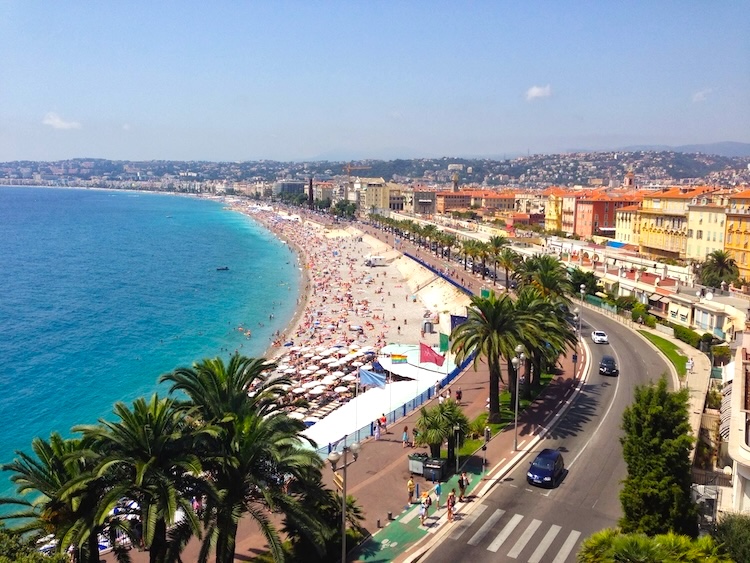
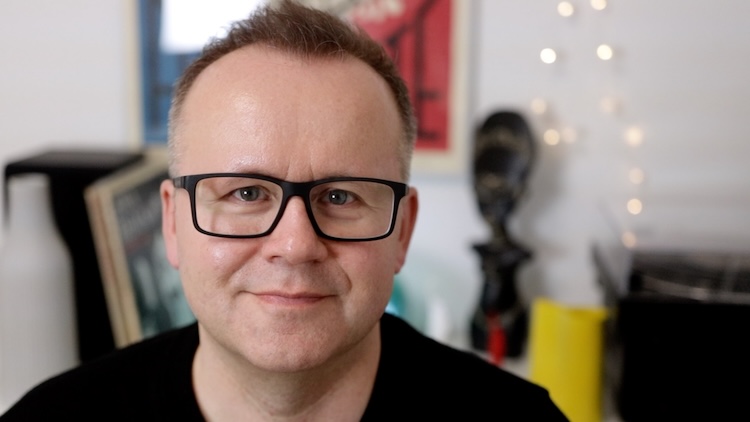
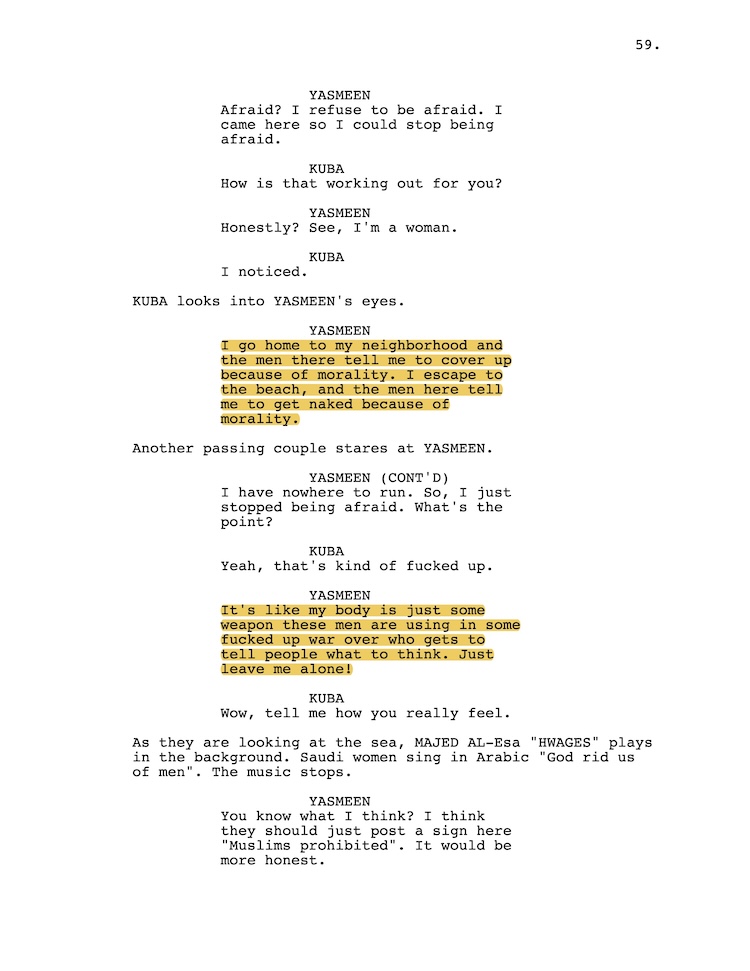

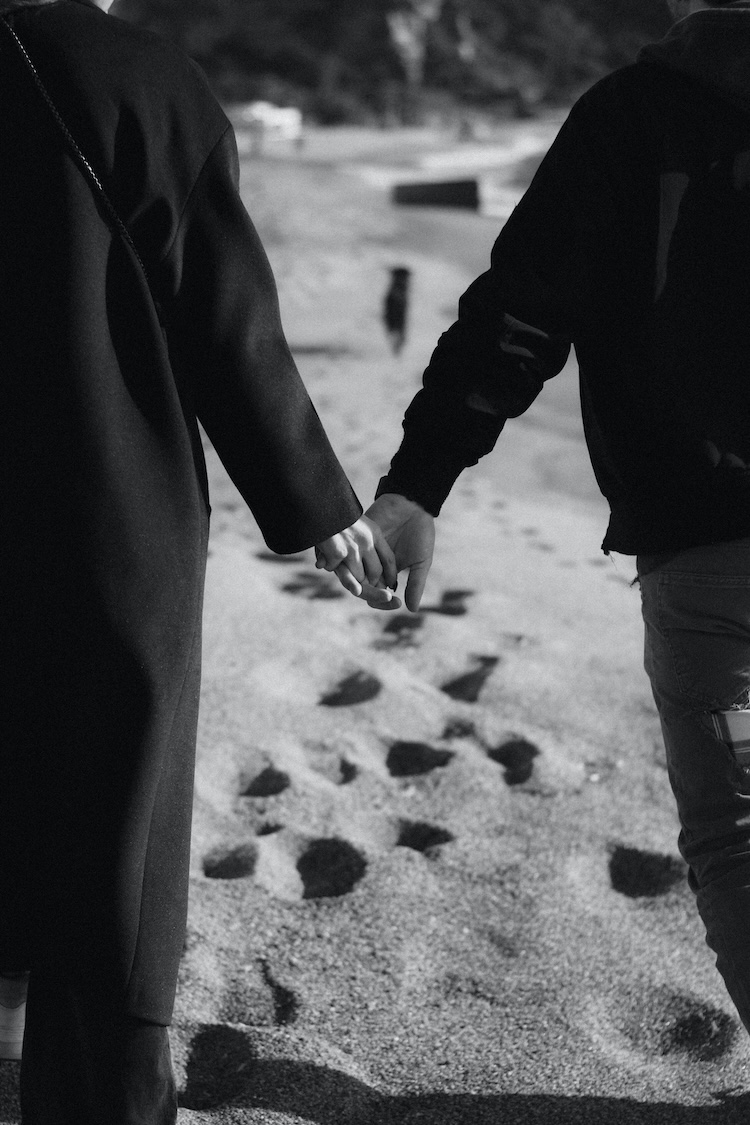
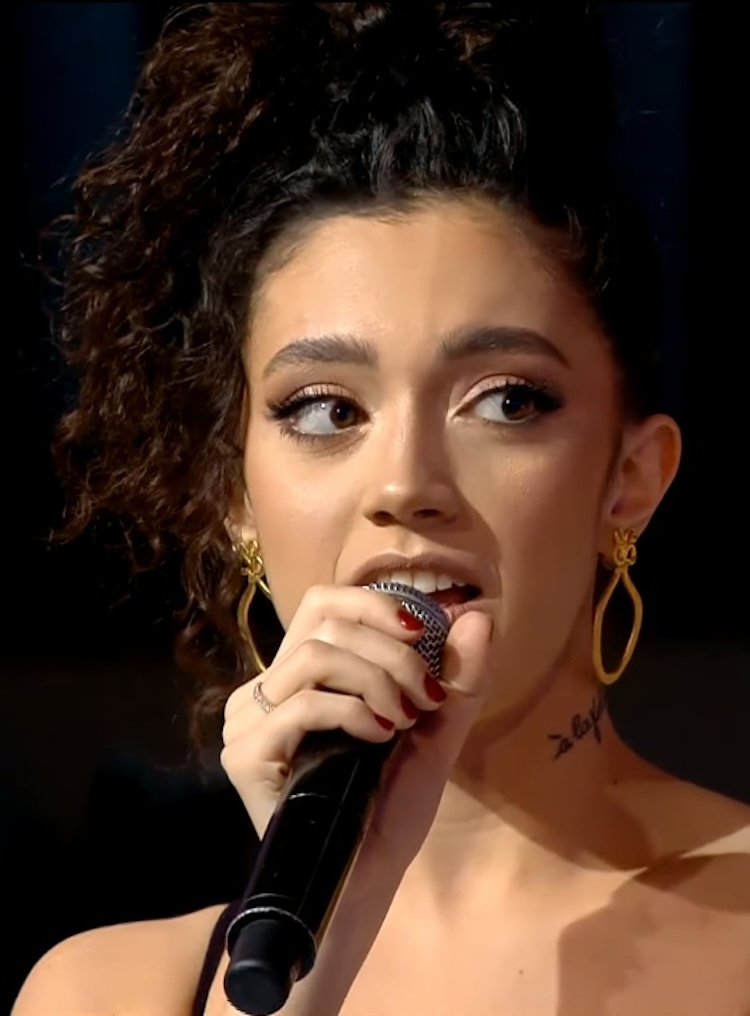
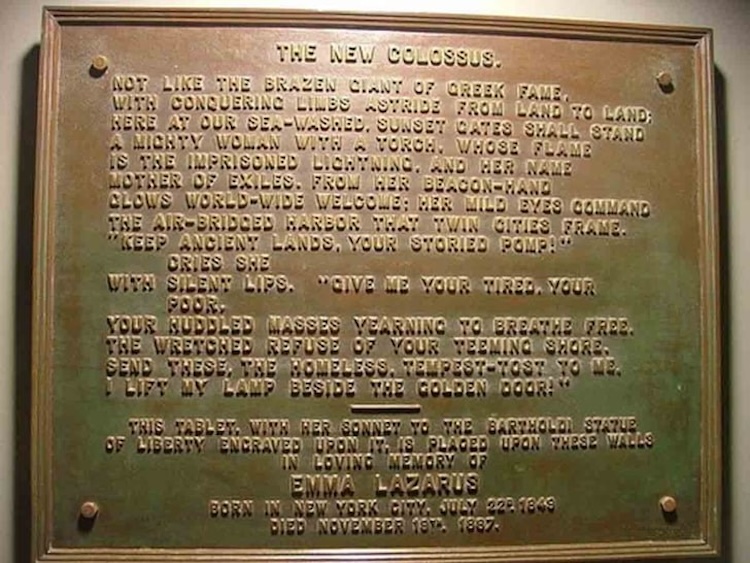
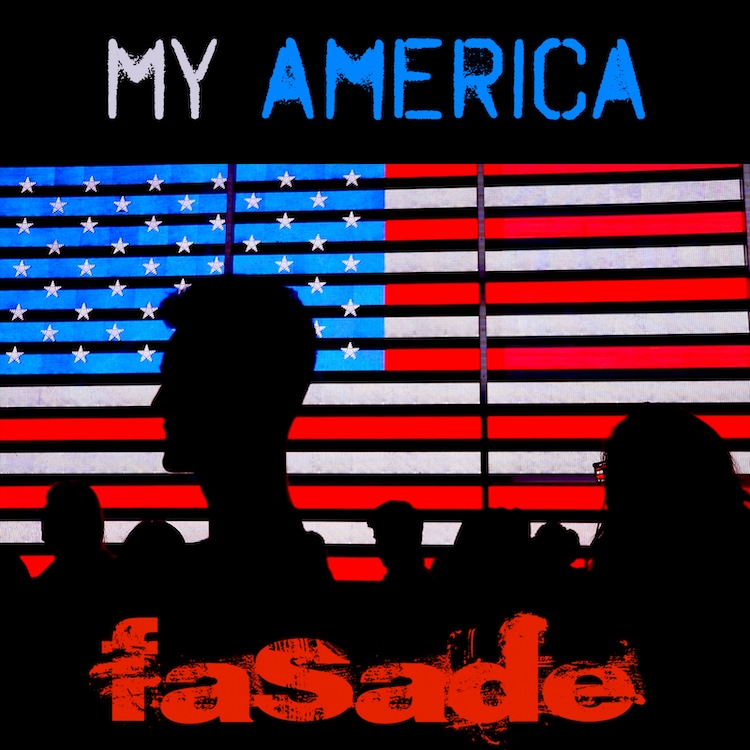
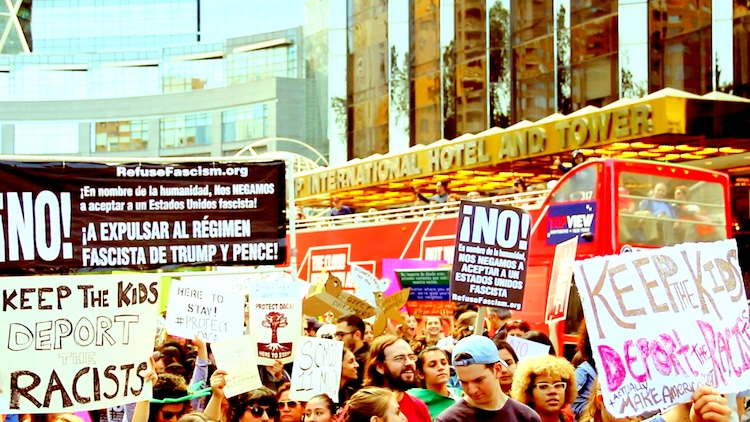
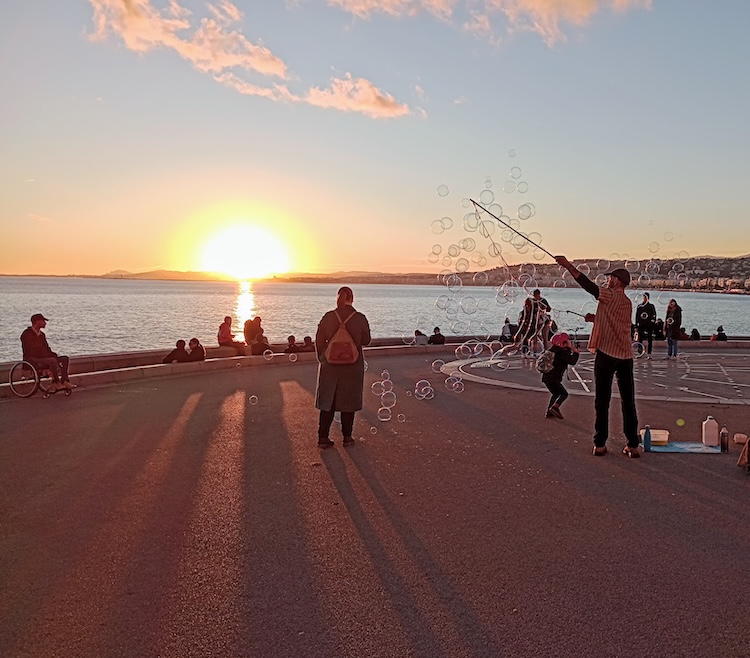
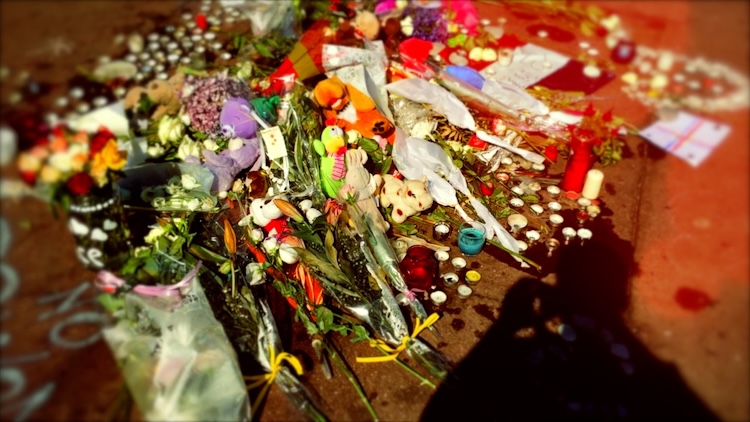
Leave a Reply